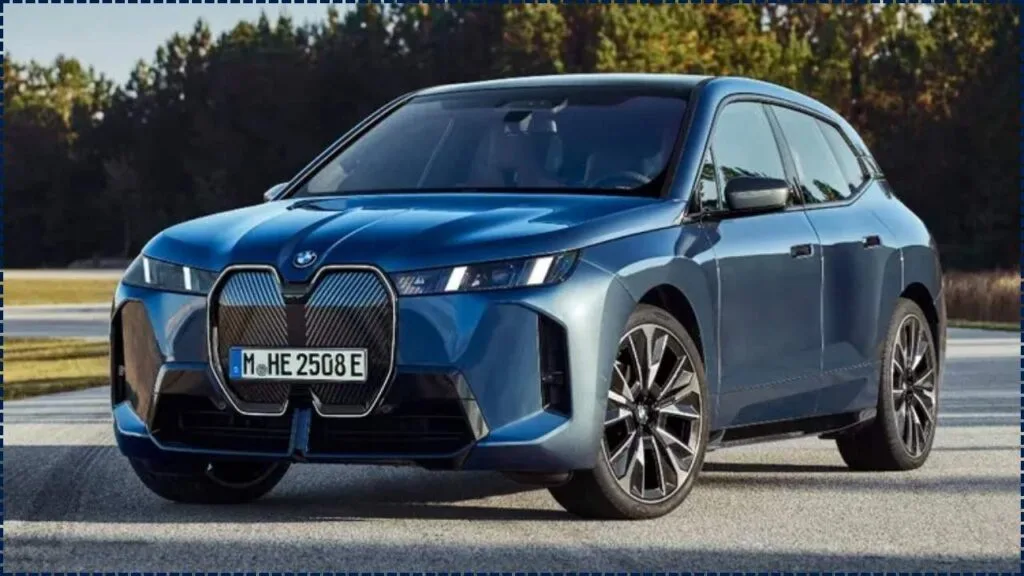BMW has taken a compassionate step to protect drivers by recalling over 70,000 electric vehicles in the U.S., including the i4, i5, i7, and iX models from 2022 to 2024. A software glitch in the electric drive motor could lead to a sudden loss of power while driving, raising crash risks. With heartfelt urgency, BMW is addressing this issue to ensure safety, fostering trust and care for drivers and communities everywhere.

This recall comes after BMW discovered that a coding error in the high-voltage system of these electric vehicles may cause the system to unexpectedly shut down, leaving the vehicle without propulsion. Fortunately, BMW has responded promptly, offering a free software update to fix the issue and ensure that these vehicles are safe to drive.
In this article, we’ll break down what led to this recall, how to identify if your car is affected, and the steps you should take to stay safe. Let’s dive into the details of this situation and what it means for BMW owners.
BMW Recalls i4, i5, i7, and iX Models
| Feature | Details |
|---|---|
| Affected BMW Models | BMW i4 (2022–2024), BMW i5 (2024), BMW i7 (2023–2024), BMW iX (2022–2024) |
| Defect Description | Software error in the electric drive motor causing loss of drive power. |
| Potential Risks | Sudden loss of propulsion increases the risk of accidents and crashes while driving. |
| Repair Action | Free over-the-air (OTA) software update or a dealer visit for a manual fix. |
| NHTSA Recall Number | 25V395 |
| Owner Notification Timeline | Owners will be notified by August 5, 2025 |
| Customer Support Contacts | BMW: 1-800-525-7417; NHTSA: 1-888-327-4236 |
| Recall Website | NHTSA Recall Lookup |
BMW’s recall of over 70,000 electric vehicles due to a software glitch highlights the vital role of technology in today’s cars. Though this may briefly affect BMW’s reputation, their swift, caring response with free software fixes shows deep commitment to driver safety and trust. As more people embrace electric vehicles, manufacturers must keep software updated with diligence and compassion, ensuring safe, reliable journeys and fostering confidence for all.

What’s the Issue? Understanding the Recall
The Root of the Problem
The recall centers around a software malfunction in the electric drive motor of the affected BMW EV models. The malfunction occurs in the high-voltage system, which controls the power delivered to the wheels. When the software error is triggered, it can cause the system to shut down unexpectedly, resulting in a loss of propulsion while driving.
Although power steering and brakes remain functional, the loss of drive power can be dangerous, especially in situations where acceleration or speed control is required. This issue is most concerning on highways or high-speed roads where the driver might need quick acceleration to avoid a collision.
The Discovery of the Issue
Initially, BMW suspected that manufacturing debris inside the electric drive unit was causing the issue. However, after further investigation, the company determined that the problem was related to a software error in the drive motor’s code. Following this discovery, BMW took immediate action to identify all affected vehicles and work on a solution.
BMW’s Electric Vehicle Journey and the Impact of This Recall
BMW’s Move into the EV Market
BMW has been a major player in the electric vehicle market for several years. The company has made significant strides in creating luxury EVs that combine sustainability and performance. With models like the BMW i3, i4, iX, and i7, BMW has gained attention for producing high-performance EVs that align with the growing consumer demand for eco-friendly vehicles.
However, as with any technology, EVs come with their own set of challenges. As more and more consumers transition to electric cars, automakers like BMW must not only focus on improving vehicle performance but also ensure the reliability of software and safety features.
How the Recall Could Impact BMW’s EV Market Share
This recall could have a temporary negative impact on BMW’s EV market share, particularly as they face increasing competition from companies like Tesla, Rivian, and traditional manufacturers like Ford and GM, who are ramping up their EV offerings. As consumer confidence plays a critical role in EV sales, any recall or issue related to safety may raise doubts among potential buyers.
On the other hand, BMW’s swift response to the recall, including offering free software updates and repairs, could help preserve its reputation for quality and innovation in the luxury EV space. The company’s ability to adapt and quickly resolve issues will play a significant role in retaining customer loyalty.
What Should BMW Owners Do?
Step 1: Check If Your Vehicle Is Affected
If you own a BMW i4, i5, i7, or iX from the affected model years (2022–2024), you should first check whether your vehicle is part of the recall. You can do this by visiting the NHTSA website and entering your Vehicle Identification Number (VIN). Alternatively, you can contact BMW customer service for assistance.
Step 2: Download the Software Update
For many affected vehicles, BMW is offering a free over-the-air (OTA) software update. This is the most convenient way to fix the issue, as it can be done remotely without the need to visit a dealership. The update will fix the coding error and restore normal vehicle operation.
To download the update, ensure your car is connected to a stable Wi-Fi network. If you’re unsure about how to perform the update, refer to your vehicle’s manual or contact BMW for assistance.
Step 3: Visit Your Local BMW Dealership
If you cannot complete the OTA update or prefer an in-person fix, you can schedule a service appointment at your local BMW dealership. BMW has instructed dealerships to perform the necessary repairs at no charge. They will handle the software update and ensure your vehicle is safe to drive.
Step 4: Stay Updated
BMW will begin sending recall notices to affected owners by August 5, 2025. If you haven’t received a notification by that date, you should check your vehicle’s recall status and schedule the update at your earliest convenience.
The Importance of Software in Modern Vehicles
Software in Modern Cars
This recall illustrates the increasing role that software plays in modern vehicle systems, particularly in electric vehicles. Unlike traditional combustion-engine vehicles, which rely heavily on mechanical components, EVs depend on highly sophisticated software to manage everything from battery performance to vehicle propulsion.
The fact that a coding error led to a safety issue in the BMW vehicles highlights just how critical it is for car manufacturers to rigorously test their software before release. The modern car is essentially a mobile computer with complex algorithms controlling many aspects of the vehicle’s operation.
The Need for Regular Software Updates
As cars rely more on software, keeping them updated is a simple, caring step for safety and performance. Manufacturers like BMW offer over-the-air updates (OTA), letting owners refresh their vehicle’s software from home, without a dealership visit. These updates, delivered with thoughtfulness, enhance driving, address safety concerns, and keep systems running smoothly, fostering peace of mind and safer journeys for everyone.
Related Links
U.S. Supercar Supremacy Crushed? Meet the Chinese Hypercar That’s Redefining Global Power
Goodbye Gasoline: Meet Rehlko—The Revolutionary Hydrogen-Electric Engine Changing Everything
Top Tesla Executive Departs and Raises New Doubts About the Company’s Future
Legal and Financial Implications for BMW
Financial Costs of the Recall
Though BMW will bear the cost of the recall, which includes the expense of providing free software updates and repairs, the company has likely set aside funds for this. The financial burden of such a recall is much lower than if the issue had been related to hardware, such as faulty brake systems or airbags.
Legal Repercussions
If this malfunction were to result in accidents or injuries, BMW could face lawsuits or other legal ramifications. Regulators like the National Highway Traffic Safety Administration (NHTSA) closely monitor the company’s recall efforts, and failing to comply with recall procedures or adequately fix the problem could lead to additional penalties.
FAQs
1. Why was the BMW recall issued?
The recall was issued due to a software malfunction in the electric drive motor, which can lead to a loss of drive power while driving, increasing the risk of accidents.
2. Which BMW models are affected by this recall?
The recall affects the BMW i4 (2022–2024), BMW i5 (2024), BMW i7 (2023–2024), and BMW iX (2022–2024) models.
3. How can I check if my vehicle is affected?
You can check your vehicle’s recall status by entering your VIN on the NHTSA Recall Lookup website or by contacting BMW customer service.
4. What should I do if my vehicle is affected?
If your vehicle is affected, schedule a free software update either via over-the-air (OTA) or by visiting your local BMW dealership.
5. What is the timeline for the recall?
BMW will begin notifying affected owners by August 5, 2025. After receiving the recall notice, owners should act quickly to update their vehicles.








